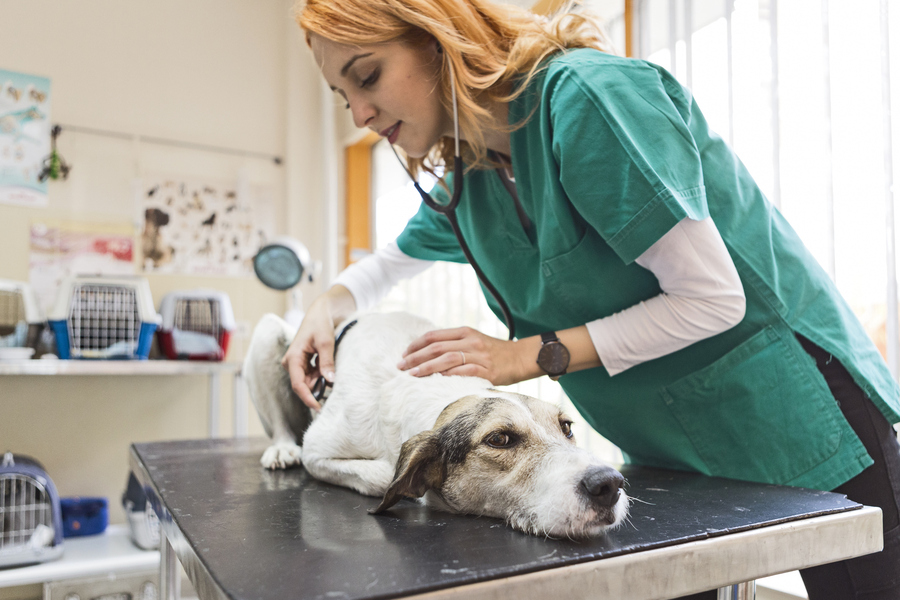
Internal infections in dogs
Infections in dogs
Infections are a common problem for dogs and can be caused by bacterium, fungi, or parasites. Internal infections will often require treatment with an appropriate medication, that can only be prescribed by a veterinarian.

Internal infections
Internal infections may be more difficult to spot than external infections, because you cannot always see the signs. Like humans, animals can be affected by a variety of internal infections, and some of the most common include:
- Urinary tract infections (UTI)
- Gastrointestinal infection
- Respiratory infections
Signs of infection can include (but are not limited to):
- High body temperature
- Lethargy
- Decreased appetite
- Changes in breathing rate
- Blood in faeces or urine
- Signs that your animal may be in pain - learn more on our pain in dogs page.
If you are worried that your dog might have an infection, always consult a vet as soon as possible.
Infections post-surgery
Any kind of surgery poses the risk of infection, although some procedures are more high risk than others. If the veterinary surgeon feels that there is a high likelihood of infection occurring, they may administer antibiotics before starting the procedure. It is common for low-risk procedures such as neutering or minor operations to be conducted without antibiotics. The vet may prescribe ongoing oral antibiotics after surgery if deemed necessary.


Treatment
Treatment for both internal and external infections can only be prescribed by a veterinary surgeon, this is because all antibiotics are classed as Prescription Only Medications (POM-V). The veterinary surgeon will conduct a full clinical examination, which may include further diagnostics such as a blood profile, urine sample or imaging, before deciding upon an appropriate treatment regime.
It is important to always administer according to the prescription and finish the course. Not doing so, could result in a treatment failure or an exacerbation of the condition you are trying to treat.
Antibiotic resistance
Antibiotic resistance (AMR) is a global concern for human and animal health.
Due to overuse and misuse of antibiotics, some are losing their effectiveness against bacteria that they were once able to treat. This means that some antibiotics may no longer be effective at killing or disabling bacteria, leading to progression of infection.
Responsible use of antibiotics is extremely important for the future of human and animal health. This means that if antibiotics are prescribed, they should be given to the patient intended as per the prescription instructions, and for the full duration of time.




